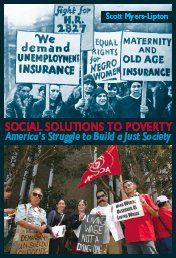How ‘Contact’ Shaped America: Columbus & The Roots of Equality
Americans from the United States are rightfully proud of the opening lines of the Declaration of Independence, which assert that all people are created equal. However, this American belief in equity, which would inspire social reformers and social justice advocates in the United States and around the world, is not grounded solely in European philosophy.
Rather, a strong argument can be made that the American notion of egalitarianism entered modern social thought as a result of European and Euro-American thinkers being challenged by the equality of Native American society, and as a result, a new way of thinking emerged.
The fact is that European cultures, in the time of Christopher Columbus up to the American Revolution, did not have a deep commitment to equality or freedom. Thomas Jefferson believed that Europe was divided into two classes, the rich and the poor, and that under the pretense of governing, the former took advantage of the latter, as wolves prey on sheep.
The European belief that the wealthy were superior to the poor is revealed when one examines who was allowed to participate in political affairs. In late eighteenth-century England, only 1 in 20 men could vote, and in Scotland, only 3,000 men could vote.
To appreciate the great intellectual debt owed to Native Americans, it is necessary to look at what European and Euro-American intellectuals were writing at that time. After examining the record, the consistent theme is that Native Americans lived with a level of equality and freedom greater than that in European society.
In one of the earliest descriptions to reach Europe, Michel de Montaigne, the French essayist, described what the first Europeans saw when they made contact with Brazilian indigenous society. Montaigne reported in 1575 that “Indian” society lacked poverty, riches, or inheritance, and that it was wrong to label this culture as savage or barbarian. Montaigne’s essay, as well as other initial postcontact commentaries that stressed egalitarianism, had a profound impact on European ideas about equity, emerging in the works of William Shakespeare in The Tempest and Thomas More in Utopia.
Over a century later, in 1703, Louis Lahontan reported details of a conversation he had with Adario, a Huron (Wyandot) male, where the latter described how American Indians lived in egalitarian relationships. According to Lahontan’s account, Adario was stunned by the high level of European poverty and repulsed by the inequality between rich and poor. Adario described Huron society as devoid of this type of inequality and argued that this would not be allowed among the Hurons. Once again, these egalitarian ideas had a strong effect on European society, as Lahontan became an international celebrity after his popular writings were adapted and made into plays, operas, farces, and burlesques throughout Europe.
In the period of the American Revolution, Europeans and Euro-Americans continued to be impressed with the level of equality in Native American society. St. John de Crèvecoeur described the American Indian way of life as superior to that of Europeans living in America, since indigenous people lived “with more ease, decency, and peace.” James Adair, who wrote The History of the American Indians in 1775, stated that in every Indian nation a person “breathes nothing but liberty” and lives with “an equality of condition, manners, and privilege.” Benjamin Franklin noted that this high degree of equity and freedom was the reason that many whites decided to go and live in Native American communities; at the same time, Franklin knew of no case where an Indian had chosen to live in white society.
The fact is that a new consciousness was gained from Native Americans about the possibility of living in a society that was both equal and free, and this served as a counterpoint to the “Old World.” Europeans and Euro-Americans had the opportunity to appraise theoretical ideas from the Enlightenment, like Locke’s notion of “liberty, equality, and property” and Rousseau’s “social contract,” in light of what they observed in Native American societies. What came out of this appraisal and reassessment led to the creation of a new philosophy of government based on equality and liberty, where society was not ruled by a monarch, but by the people.


1 Comments:
It is important to note, however, that Montaigne never actually traveled to the new world and had no personal experience with the Indians. Shakespeare's treatment of Montaigne's essays is also sarcastic and mocks the idealistic description of the new world natives, as the concept of cultural relativism had yet to fully develope and such peoples were still widely regarded as savage and uncivilized.
Post a Comment
Subscribe to Post Comments [Atom]
<< Home